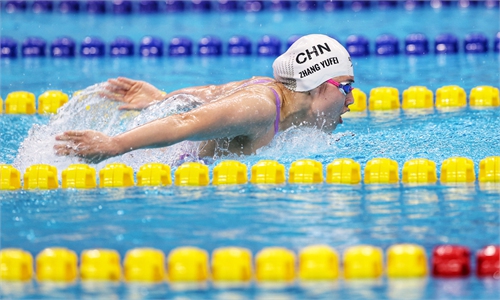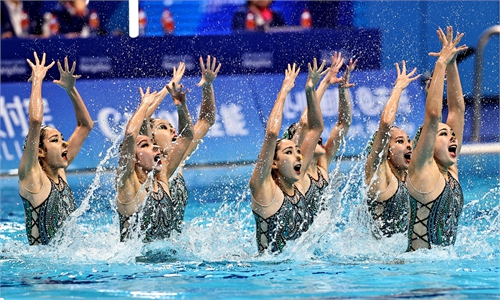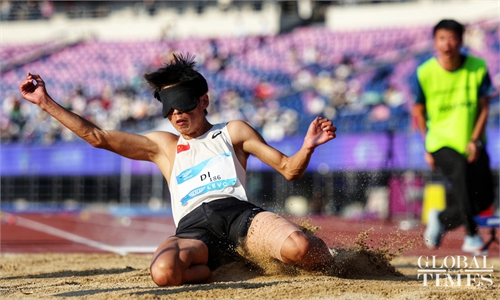ARTS / CULTURE & LEISURE
China's first Student Games reveal efforts toward integration of sports, education

Illustration: Liu Xiangya
Breakdancing, surfing, roller skating, and rock climbing… Various emerging sports have attracted the public attention at the ongoing China's first Student (Youth) Games, showing off young Chinese players' athletic talents and aspirations for the future.
The Games opened on November 5 at the Guangxi Sports Center in Nanning, South China's Guangxi Zhuang Autonomous Region, drawing about 18,000 young players.
It is the first time that Guangxi has hosted a national multi-sports event. Lasting until November 15, the Games feature 39 sports, 51 disciplines and 805 events in open and campus categories.
The Games, a collaborative effort by the Ministry of Education, the General Administration of Sport, and the Central Committee of the Communist Youth League of China, represent a fusion of the National Youth Games and the National Student Games. These events, traditionally conducted independently, have now been combined into a single sporting event. As campus and professional youth sports competitions were held separately in the past, some students had to give up their studies to become professional athletes. Therefore, the initiative to combine these two has been widely welcomed and regarded as significant progress.
This innovation is part of China's endeavor to improve the country's youth sports system in line with a 2020 guideline on deepening the integration of sports and education to promote the healthy development of China's youth.
As the report to the 20th National Congress of the Communist Party of China pointed out, China will launch extensive public fitness initiatives, improve physical education for China's young people, promote all-around development of recreational and competitive sports, and move faster to build China into a country strong in sports.
The physical education on campus has made notable progress. Swimming is one case in point. The Chinese delegation achieved their best performance at swimming events of the 31st FISU World University Games in Chengdu, winning 18 golds and two bronzes. Many young athletes have emerged prominently in the competitions at the first Student (Youth) Games as well.
"In recent years, swimming has developed very rapidly on domestic campuses," said Liu Zhenqing, secretary-general of the Swimming Branch of Federation of University Sports of China. He noted that more and more students have become interested in swimming because of the encouraging sports climate on campus.
Guiding more students to participate in sports, grow an interest in sports, and benefit from sports is the essence of strengthening and improving physical education in schools. Liu pointed out that this year, for the first time, the Chinese University Swimming Championships set up separate competitions for the northern and southern regions of China, as well as a final championship, to encourage more participants to join.
"For this year's finals, we will invite national team coaches to compare notes with university coaches in the hopes of strengthening cooperation in talent selection and training. These efforts, hopefully, will help swimming take root in and further grow on campus," he said.
Meanwhile, in recent years, beyond promoting physical health, the multiple layers of benefits brought by sports have started to receive attention and seen as more valuable. The event settings of the Games highlight the more diverse sports choices of China's younger generation.
Take breakdancing at the Games. Many contestants under 10 years old performed excellently in the competition, winning applause from the spectators.
"This shows that young breakdancers have made great progress, and this sport is developing better and better in China," said Guo Mingyi, a coach of the Chengdu team.
"Fast growth and outstanding performance of young athletes make us look forward to the development of breakdancing in China," said Su Jie, secretary-general of the Chinese Sports Dance Federation.
The inclusion of emerging sports such as surfing, breakdancing, and rock climbing adds more novelty to this youth festival. At the same time, outside the arena of the Games, young people can be seen participating in emerging and niche sports. Not for the sake of winning, but just for the pure joy, sports have gradually become an important way to meet the spiritual needs of young people.
Industry insiders say that the participation of more young people in dynamic and fashionable emerging sports greatly promotes their involvement in sports, understanding of sports, and passion for sports. When young people devote themselves to sports, it is more likely they will foster a strong will and sound personality.




